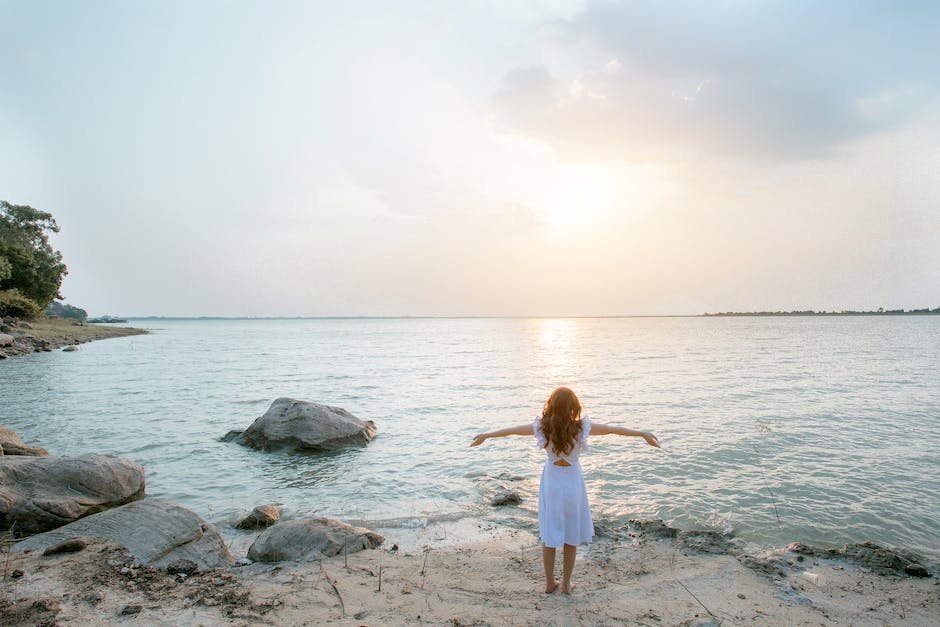Table of Contents
The Long Walk to Freedom: Nelson Mandela’s Fight for Equality – Inspiring the World Towards Justice.
Introduction
“The Long Walk to Freedom: Nelson Mandela’s Fight for Equality” is a powerful autobiography written by Nelson Mandela himself. Published in 1994, this book chronicles Mandela’s extraordinary life journey, from his childhood in rural South Africa to his role as a prominent anti-apartheid activist and eventually becoming the first democratically elected President of South Africa. Mandela’s story is a testament to his unwavering commitment to justice, equality, and the struggle against racial oppression. Through his personal experiences and reflections, Mandela provides a profound insight into the challenges faced by black South Africans under apartheid and the resilience required to overcome them. This book serves as an inspiring testament to Mandela’s indomitable spirit and his lifelong dedication to the fight for freedom and equality.
Nelson Mandela’s Early Life and Activism

Nelson Mandela, a name synonymous with the fight for equality and justice, was born on July 18, 1918, in the small village of Mvezo, South Africa. Growing up in a country deeply divided by racial segregation, Mandela’s early life was marked by the harsh realities of apartheid. However, it was during these formative years that he developed a deep sense of justice and a burning desire to fight for the rights of his people.
Mandela’s journey towards activism began when he moved to Johannesburg to pursue his education. It was here that he first encountered the brutal realities of apartheid, witnessing firsthand the discrimination and oppression faced by black South Africans. This experience ignited a fire within him, and he soon became involved in the African National Congress (ANC), a political organization dedicated to fighting for the rights of black South Africans.
In the early years of his activism, Mandela focused on peaceful protests and civil disobedience. He believed in the power of nonviolent resistance and worked tirelessly to mobilize the black community against the oppressive apartheid regime. However, as the government responded with increasing violence and repression, Mandela realized that more drastic measures were necessary to bring about real change.
In 1961, Mandela co-founded Umkhonto we Sizwe (MK), the armed wing of the ANC. The formation of MK marked a turning point in Mandela’s activism, as he recognized the need for armed struggle to combat the state’s brutality. Mandela and his comrades embarked on a campaign of sabotage, targeting government buildings and infrastructure. Their goal was not to harm innocent civilians but to disrupt the functioning of the apartheid state and draw international attention to the injustices being perpetrated.
However, Mandela’s commitment to armed struggle came at a great personal cost. In 1962, he was arrested and charged with sabotage and conspiracy to overthrow the government. Mandela’s trial was a highly publicized event, attracting international attention and shining a spotlight on the injustices of apartheid. Despite facing the possibility of the death penalty, Mandela used the trial as a platform to articulate his vision of a democratic and equal South Africa.
In 1964, Mandela was sentenced to life imprisonment and sent to Robben Island, a notorious prison where political prisoners were held. Mandela spent the next 27 years behind bars, enduring harsh conditions and constant surveillance. However, even in the face of such adversity, Mandela remained resolute in his commitment to the struggle for freedom and equality.
During his time in prison, Mandela became a symbol of resistance and hope for millions of South Africans. His unwavering determination and moral courage inspired a generation of activists both within South Africa and around the world. Mandela’s imprisonment also served to galvanize international support for the anti-apartheid movement, with governments and organizations rallying behind the call for his release.
Finally, in 1990, after years of international pressure and internal reforms, Mandela was released from prison. His release marked a turning point in South Africa’s history, signaling the beginning of a new era of democracy and equality. Mandela went on to play a pivotal role in the negotiations that led to the dismantling of apartheid and the establishment of a democratic government.
Nelson Mandela’s early life and activism laid the foundation for his lifelong fight for equality. From his humble beginnings in a small village to his years of imprisonment, Mandela’s journey was one of resilience, courage, and unwavering commitment to justice. His legacy continues to inspire and guide those who strive for a more just and equal world.
The Apartheid Era: Mandela’s Imprisonment and Resistance
The Apartheid Era: Mandela’s Imprisonment and Resistance
During the Apartheid era in South Africa, Nelson Mandela emerged as a prominent figure in the fight against racial segregation and inequality. His unwavering commitment to justice and equality led to his imprisonment and subsequent rise as a symbol of resistance.
The Apartheid era, which lasted from 1948 to 1994, was a dark period in South African history. The government implemented a system of racial segregation, where the rights and opportunities of the majority black population were severely restricted. Mandela, a lawyer and activist, became increasingly involved in the anti-Apartheid movement, which sought to dismantle this oppressive regime.
In 1962, Mandela was arrested and charged with sabotage and conspiracy to overthrow the government. He was sentenced to life imprisonment and sent to Robben Island, a notorious prison where political prisoners were held. Despite the harsh conditions and isolation, Mandela remained resolute in his fight for equality.
During his 27 years in prison, Mandela became a symbol of hope and resistance. He continued to advocate for the rights of black South Africans, even from behind bars. His imprisonment only served to strengthen his resolve and inspire others to join the struggle against Apartheid.
Mandela’s imprisonment also brought international attention to the injustices of the Apartheid regime. The international community rallied behind Mandela, demanding his release and condemning the South African government’s discriminatory policies. This global support played a crucial role in putting pressure on the Apartheid government to negotiate a peaceful transition to democracy.
In 1990, after years of international pressure and internal unrest, Mandela was finally released from prison. His release marked a turning point in South African history and set the stage for negotiations between the Apartheid government and the African National Congress (ANC), the political party Mandela belonged to.
Mandela’s release from prison was met with jubilation and hope. He immediately resumed his role as a leader and negotiator, working towards a peaceful transition to democracy. Mandela’s ability to forgive and reconcile with his former oppressors was a testament to his unwavering commitment to justice and equality.
In 1994, South Africa held its first democratic elections, and Mandela was elected as the country’s first black president. His presidency was marked by a commitment to reconciliation and nation-building. Mandela’s leadership and vision helped heal the wounds of the past and lay the foundation for a more inclusive and equal South Africa.
Mandela’s fight for equality and his journey from imprisonment to presidency serves as an inspiration to people around the world. His unwavering commitment to justice and his ability to forgive and reconcile are qualities that continue to resonate today.
In conclusion, the Apartheid era in South Africa was a dark period marked by racial segregation and inequality. Nelson Mandela’s imprisonment and resistance played a pivotal role in dismantling this oppressive regime. His 27 years in prison only strengthened his resolve and inspired others to join the fight for equality. Mandela’s release from prison marked a turning point in South African history and set the stage for a peaceful transition to democracy. His leadership as the country’s first black president helped heal the wounds of the past and laid the foundation for a more inclusive and equal South Africa. Mandela’s journey from imprisonment to presidency serves as a powerful reminder of the enduring power of hope, resilience, and the fight for justice.
The Long Walk to Freedom: Mandela’s Journey to Equality
The Long Walk to Freedom: Nelson Mandela’s Fight for Equality
Nelson Mandela, a name that resonates with courage, resilience, and the unwavering pursuit of justice. Mandela’s journey to equality was a long and arduous one, filled with countless obstacles and sacrifices. From his early days as a young activist to his eventual rise as the first black president of South Africa, Mandela’s story is a testament to the power of determination and the fight against oppression.
Born on July 18, 1918, in the small village of Mvezo, Mandela grew up in a society deeply divided by racial segregation. From a young age, he witnessed firsthand the injustices faced by black South Africans under the apartheid regime. This early exposure to inequality ignited a fire within Mandela, propelling him towards a life dedicated to fighting for the rights of his people.
Mandela’s journey began in earnest when he joined the African National Congress (ANC) in 1944. The ANC, a political organization formed to challenge apartheid, became the platform through which Mandela would channel his activism. As a member of the ANC, Mandela tirelessly campaigned for the rights of black South Africans, advocating for equal treatment and an end to racial discrimination.
However, Mandela’s fight for equality did not come without consequences. In 1962, he was arrested and sentenced to life imprisonment for his involvement in anti-apartheid activities. Mandela spent the next 27 years behind bars, enduring harsh conditions and isolation. Yet, even in the face of such adversity, Mandela remained steadfast in his belief in the power of non-violent resistance and reconciliation.
During his time in prison, Mandela became a symbol of hope and inspiration for millions around the world. His unwavering commitment to justice and equality resonated with people from all walks of life, transcending borders and ideologies. Mandela’s imprisonment only served to strengthen his resolve and solidify his status as a global icon of the struggle against oppression.
Finally, in 1990, after years of international pressure and internal reforms, Mandela was released from prison. His release marked a turning point in South Africa’s history, signaling the beginning of a new era of democracy and equality. Mandela wasted no time in seizing this opportunity, working tirelessly to negotiate an end to apartheid and pave the way for a democratic South Africa.
In 1994, Mandela’s efforts culminated in the country’s first multiracial elections, in which he was elected as the first black president of South Africa. Mandela’s presidency was marked by a commitment to reconciliation and nation-building. He sought to heal the wounds of the past and build a society based on equality, justice, and respect for all.
Mandela’s legacy extends far beyond his presidency. His fight for equality and his unwavering dedication to justice continue to inspire generations around the world. Mandela’s journey serves as a reminder that the path to equality is often long and arduous, but it is a journey worth taking.
In conclusion, Nelson Mandela’s long walk to freedom was a testament to his unwavering commitment to equality and justice. From his early days as a young activist to his eventual rise as the first black president of South Africa, Mandela’s journey serves as an inspiration to all those fighting against oppression. His legacy will forever be etched in history as a symbol of hope, resilience, and the power of the human spirit.
Mandela’s Legacy: Impact on South Africa and the World
Nelson Mandela, the iconic leader of the anti-apartheid movement in South Africa, left an indelible mark on the world through his tireless fight for equality and his unwavering commitment to justice. Mandela’s legacy extends far beyond the borders of South Africa, as his impact on the country and the world at large is immeasurable.
One of the most significant aspects of Mandela’s legacy is his role in the peaceful transition from apartheid to democracy in South Africa. After spending 27 years in prison for his activism, Mandela emerged as a symbol of hope and reconciliation. He played a pivotal role in negotiations with the apartheid government, leading to the dismantling of the oppressive system and the establishment of a democratic government. Mandela’s ability to unite a deeply divided nation and promote forgiveness and reconciliation set a powerful example for the rest of the world.
Mandela’s impact on South Africa’s political landscape cannot be overstated. As the country’s first black president, he worked tirelessly to address the deep-rooted inequalities that had plagued the nation for decades. Mandela’s government implemented policies aimed at redressing the injustices of apartheid, including land reform, affirmative action, and the provision of basic services to previously marginalized communities. His commitment to social justice and equality laid the foundation for a more inclusive and equitable South Africa.
Beyond South Africa, Mandela’s legacy has had a profound impact on the global stage. He was a staunch advocate for human rights, and his fight against apartheid resonated with people around the world. Mandela’s message of peace, forgiveness, and reconciliation transcended borders and inspired countless individuals and movements. His leadership and moral authority made him a respected figure on the international stage, and he used his influence to champion causes such as HIV/AIDS awareness, education, and poverty alleviation.
Mandela’s legacy also serves as a reminder of the power of perseverance and resilience in the face of adversity. Despite enduring years of imprisonment and hardship, Mandela never wavered in his commitment to justice and equality. His unwavering determination and unwavering belief in the inherent worth of every individual continue to inspire generations to fight for a better world.
In conclusion, Nelson Mandela’s legacy is one of hope, resilience, and the power of unity. His fight for equality and justice in South Africa and his unwavering commitment to peace and reconciliation have left an indelible mark on the world. Mandela’s impact extends far beyond his role as South Africa’s first black president; his message of forgiveness and his ability to unite a divided nation serve as a powerful example for the rest of the world. Mandela’s legacy is a testament to the enduring power of the human spirit and a reminder that the fight for equality and justice is one that must be carried on by future generations.
Q&A
1. What is “The Long Walk to Freedom: Nelson Mandela’s Fight for Equality” about?
“The Long Walk to Freedom: Nelson Mandela’s Fight for Equality” is a book that chronicles Nelson Mandela’s life and his struggle against apartheid in South Africa.
2. Who is the author of “The Long Walk to Freedom: Nelson Mandela’s Fight for Equality”?
The author of “The Long Walk to Freedom: Nelson Mandela’s Fight for Equality” is Nelson Mandela himself.
3. What is the significance of “The Long Walk to Freedom: Nelson Mandela’s Fight for Equality”?
The book provides a firsthand account of Nelson Mandela’s journey from his early life to his imprisonment and eventual release, highlighting his fight for equality and the end of apartheid in South Africa.
4. When was “The Long Walk to Freedom: Nelson Mandela’s Fight for Equality” published?
“The Long Walk to Freedom: Nelson Mandela’s Fight for Equality” was first published in 1994.
Conclusion
“The Long Walk to Freedom: Nelson Mandela’s Fight for Equality” is a powerful memoir that chronicles Nelson Mandela’s journey towards achieving equality and justice in South Africa. Through his personal experiences, Mandela highlights the struggles, sacrifices, and triumphs of the anti-apartheid movement. This book serves as an inspiring testament to Mandela’s unwavering commitment to freedom and his enduring legacy as a global symbol of hope and resilience.




